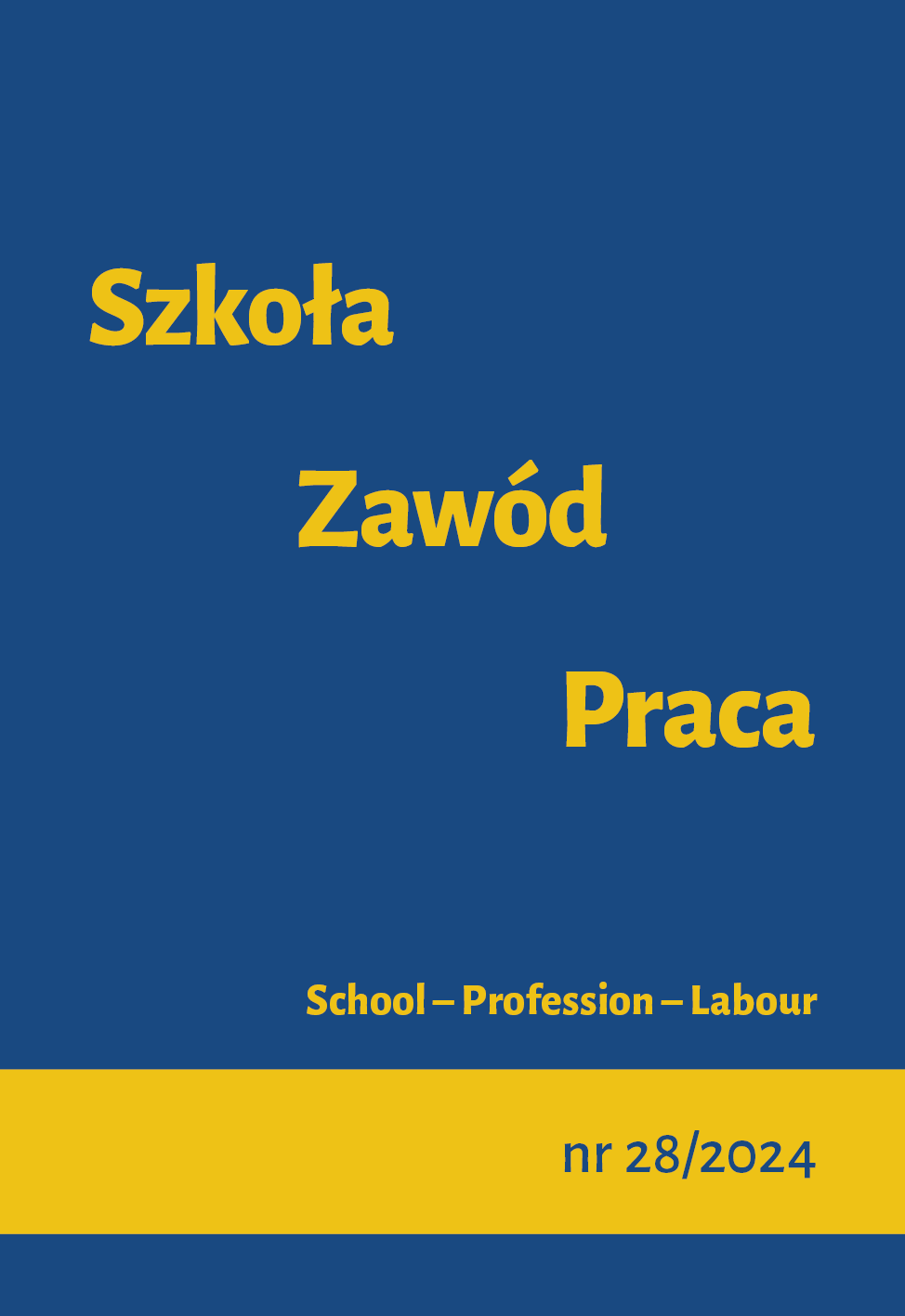Students’ opinions on the impact of the COVID-19 pandemic on their psychophysical functioning
DOI:
https://doi.org/10.34767/SZP.2024.02.10Keywords:
students, opinions, pandemic, distance learningAbstract
A lot of various conditions affect the psychosocial functioning of students; however, the COVID-19 pandemic challenged many people. This is an important research area in both the social sciences and medical and health sciences that is still under-recognized. The purpose of this study was to present students’ opinions on the impact of the pandemic on their psychophysical functioning. At the beginning of the 2020s, a wide variety of unprecedented problems appeared in the lives of young people. Based on a survey of people studying physiotherapy, dietetics, and physical education in a medium-sized city, it can be concluded that the opinions of many students indicate a perceived deterioration in psycho-physical condition due to the occurrence of the pandemic. Students reported ongoing concerns about their health and the well-being of their loved ones. Factors contributing to the decline in their psychosocial and physical state included financial difficulties, challenges in continuing education, and weakened interpersonal relationships.
References
Anderson, C.E., Dutton, L.L. Physical therapy student stress during the COVID-19 pandemic: A qualitative study. Journal of Physical Therapy Education, 36(1) (2022).
Aristovnik, A., Keržič, D., Ravšelj, D., Tomaževič, N., Umek, L. Impacts of the COVID-19 pandemic on life of higher education students. A global perspective. Sustainability, 12(20) (2020).
Aucejo, E.M., French, J., Araya, M.P.U., Zafar, B. The impact of COVID-19 on student experiences and expectations. Evidence from a survey. Journal of Public Economics, 191 (2020).
Burns, D., Dagnall, N., Holt, M. Assessing the impact of the COVID-19 pandemic on student wellbeing at universities in the United Kingdom. A conceptual analysis. Frontiers in Education, 5 (2020).
Długosz, A. Students’ reflections on learning during a pandemic. Szkoła – Zawód – Praca, 22 (2022).
Długosz, P. (2020). Raport z badań: „Krakowscy studenci w sytuacji zagrożenia pandemią koronawirusa”. Kraków: UJ.
Góra, K., Bijas, K., Dziubek, J.N., Korniluk, A. Kurtyka, J., Ledwoń, A., Gerłowska, J. Dobrostan studentów w czasie pandemii koronawirusa SARS-CoV-2. Annales Universitatis Mariae Curie-Skłodowska. Sectio J. Paedagogia-Psychologia, 33(3) (2020).
Gutowska, A., Sztobryn-Giercuszkiewicz, J. (2022). Zdrowie psychiczne w czasie pandemii – perspektywa studentów z niepełnosprawnościami. W: G. Mikołajczyk-Lerman,
J. Sztobryn-Giercuszkiewicz (red.), Życie z niepełnosprawnością w świecie VUCA. Łódź: UŁ.
Iwińska, M. (2020). Wyzwania edukacyjne podczas pandemii w opinii studentów pracy socjalnej. W: N. Pikuła, K. Jagielska, J. Łukasiak (red.), Wyzwania dla edukacji w sytuacji pandemii COVID-19. Kraków: Scriptum.
Kantar (2020). Raport MultiSport Index 2020. Aktywność fizyczna Polaków wymaga wsparcia. Badanie wpływu aktywności fizycznej na życie prywatne i zawodowe Polaków w 2020 r., z uwzględnieniem wpływu pandemii COVID-19, zrealizowane przez Kantar na zlecenie Benefit Systems. Warszawa: Kantar Polska.
Kee, C.E. The impact of COVID-19: Graduate students’ emotional and psychological experiences. Journal of Human Behavior in The Social Environment, 31(1–4) (2021).
Kraśniewski, A. (2020). O jakości kształcenia w czasach COVID-19: stare odpowiedzi na nowe pytania? W: J. Lubacz (red.), Nauczanie po pandemii. Nowe pytania czy nowe odpowiedzi na stare pytania? Warszawa: SGGW.
Kulawska, E. (2021). Kształcenie zdalne, poziom stresu i dobrostan psychiczny studentów pedagogiki w pierwszej fazie pandemii choroby COVID-19. Forum Pedagogiczne, 11(2) (2021).
López Peláez, A., Erro-Garcés, A., Pinilla García, F.J., Kiriakou, D. Working in the 21st century. The coronavirus crisis: a driver of digitalisation, teleworking and innovation with unintended social consequences. Information, 12 (2021).
López-Valenciano, A., Suárez-Iglesias, D., Sanchez-Lastra, M.A., Ayán, C. Impact of COVID-19 pandemic on university students’ physical activity levels: an early systematic review. Frontiers in Psychology, 11 (2021).
Myszka-Strychalska, L., Peret-Drążewska, P., Marciniak, M., Karmolińska-Jagodzik, E., Kanclerz, B. Młodzież akademicka w okresie pandemii COVID-19: sytuacja zawodowa i materialna – egzemplifikacje badawcze. Roczniki Pedagogiczne, 14(50), 3 (2022).
Nawój-Połoczańska, J. Doradztwo zawodowe u progu zmian. Szkoła – Zawód – Praca, 19 (2020).
Öncen, S., Tanyeri, L. Evaluation of the physical activity levels of the students in a physical education and sports science department before and during the coronavirus pandemic. International Education Studies, 13(10) (2020).
Owusu-Fordjour, C., Koomson, C.K., Hanson, D. The impact of COVID-19 on learning- the perspective of the Ghanaian student. European Journal of Education Studies, 7 (2020).
Pejsak, Z., Tarasiuk, K., Tokarz-Deptuła, B. Wybrane dane na temat zakażeń koronawirusami, ze szczególnym uwzględnieniem SARS-CoV-2. Medycyna Weterynaryjna, 76(5) (2020).
Pyrć, K. Ludzkie koronawirusy. Postępy Nauk Medycznych, 28(4B) (2015).
Rogowska, A.M., Kuśnierz, C., Bokszczanin, A. Examining anxiety, life satisfaction, general health, stress and coping styles during COVID-19 pandemic in Polish sample of university students. Psychology Research and Behavior Management, 13 (2020).
Sikorska, I.M., Lipp, N., Wróbel, P., Wyra, M. Aktywność a zdrowie psychiczne młodzieży w okresie izolacji społecznej spowodowanej pandemią COVID-19. Postępy Psychiatrii i Neurologii, 30(2) 2021.
Skalski, S. Obawy studentów związane z pandemią koronawirusa SARS-CoV-2. Edukacja. Terapia. Opieka, 3 (2021).
Srivastav, A.K., Sharma, N., Samuel, A.J. Impact of Coronavirus disease-19 (COVID-19) lockdown on physical activity and energy expenditure among physiotherapy professionals and students using web-based open E-survey sent through WhatsApp, Facebook and Instagram messengers. Clinical Epidemiology and Global Health, 9 (2021).
Szopiński, T., Bachnik, K. Student evaluation of online learning during the COVID-19 pandemic. Technological Forecasting and Social Change, 174 (2022).
Terrón-Pérez, M., Cortes-Amador, S., Portolés-Simeó, J.B. Analysis of losses in physiotherapy students during the COVID-19 pandemic: a phenomenological approach. BMC Psychology, 12(1) (2024).
United Nations Children’s Fund (UNICEF) (2020). COVID-19: Are children able to continue learning during school closures? A global analysis of the potential reach of remote learning policies using data from 100 countries. New York: UNICEF.
Wang, C., Wen, W., Zhang, H., Ni, J., Jiang, J., Cheng, Y., Zhouc, M., Ye, L., Feng, Z., Ge, Z., Luo, H., Wang, M., Zhang, X., Liu, W. Anxiety, depression, and stress prevalence among college students during the COVID-19 pandemic. A systematic review and meta-analysis. Journal of American College Health, 71(7) (2021).
Zalewska, A., Gałczyk, M., Sobolewski, M., Białokoz-Kalinowska, I. Depression as compared to level of physical activity and internet addiction among polish physiotherapy students during the COVID-19 pandemic. International Journal of Environmental Research and Public Health, 18(19) (2021)


